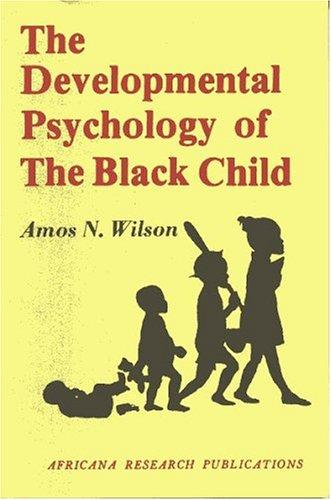Developmental Psychology of the Black Child
by Amos N. Wilson
Nonfiction, Paperback, 216 pages
More Info ▶
Description of Developmental Psychology of the Black Child by Amos N. Wilson
- Are Black and White Children the same?
- Are there any significant differences in the mental and physical growth and development of Black and White Children?
- Are such leisure time activities as the playing of certain games, watching T.V., going to the movies, listening to the radio, hazardous to the mental health of Black Children?
- Why do Black Children generally score lower than White Children on I.Q. tests?
- Is the Black Child merely a White Child who "happens" to be "painted" Black?
- What effects does race awareness have on the mental and personality development of Black Children?
- Is the use of Black English a sign of mental inferiority?
- Do Black parents socialize their children to be inferior to White Children?
- Why have integrated schools and busing failed so many Black Children?
If you have been looking for a single source which deals with these and related controversial questions from a black perspective, then this book may be the book for you. For between its covers, THE DEVELOPMENTAL PSYCHOLOGY OF THE BLACK CHILD, the first of a UBCS series of books dealing with the growth, development, and education of the black child; the first book which deals exclusively with the physical and psychosocial development of the black child, in a scholarly but readily understandable way, forthrightly confronts these and other issues. The seminal and thought-provoking book goes beyond other such attempts of this typw in a variety of ways: (1) It presents many little known facts and surprising details about the development of the black child. (2) It presents an honest, poignant, spirited and in-depth description of the world of the black child from conception to school age. (3) It explores in a unique way the world of the black parent. And (4) it tenaciously pursues the implications of the issues it deals with and makes positive recommendations for evaluating them.

Additional Book Information:
- ISBN: 9780686241836
- Imprint: Africana Research Publications
- Publisher: Africana Research Publications
- Parent Company: Africana Research Publications
